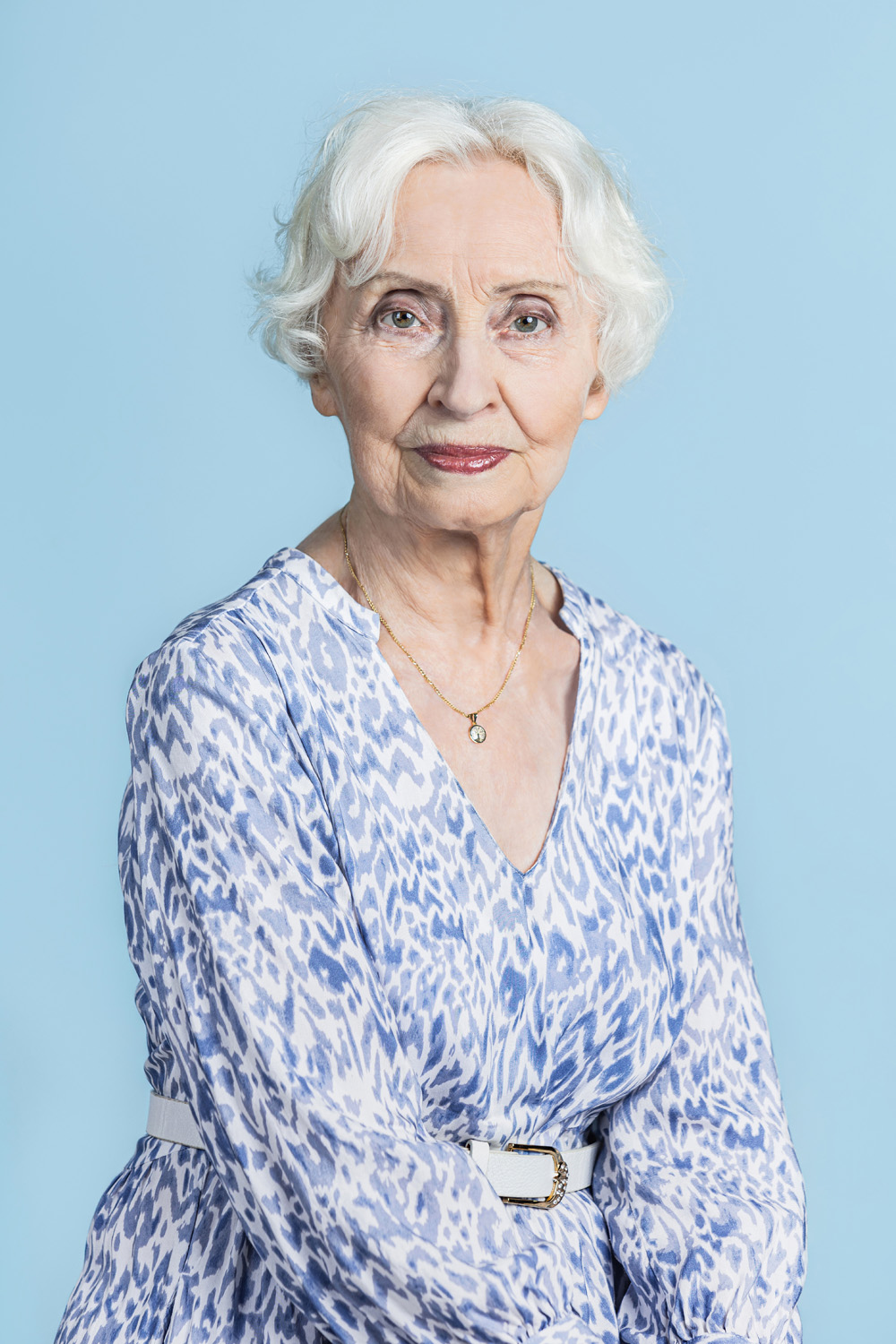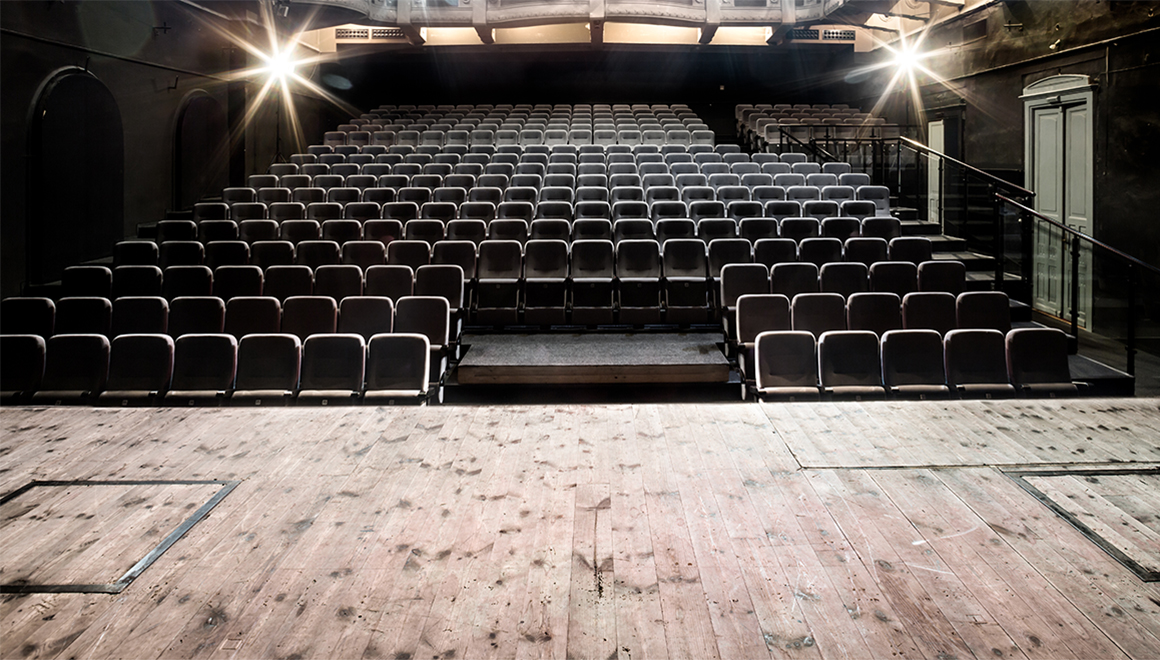Actors
Actors

Anna Polony
Graduate of the Acting Faculty (1960) and Theatre Directing Faculty (1984) of the Ludwik Solski State Theatre School in Krakow
“Anna Polony is greatness in motion, constantly developing kinetic energy. She remains as she was when she was canonized a saint of the theatre, an elemental tempest of the stage. This is something to remember, to know, to see. Or just to remind oneself. To take comfort that a crown of laurels need not always pale and wither” (Teresa Krzemień, “Polony”).
A towering personality of the Polish theatre, symbolizing the most noble achievements of contemporary acting: dazzling talent, masterful craft, professional ethics in the profoundest sense. Practically from the beginning of her career at the Stary Theatre (she spent only the seasons from 1960/61 to 1963/64 at the Juliusz Słowacki Theatre), where she presently appears as the actor Madeleine grappling with her memories in Marguerite Duras’s “Savannah Bay,” directed by Józef Opalski. Her first decade in the theatre marked and defined the artist, with Konrad Swinarski having a major impact on her creative personality. She played in all his productions at the Stary Theatre. Zuzanna in “The Pathetic and True Tragedy of Mr. Arden…,” Orcio in Krasiński’s “The Undivine Comedy,” Kathe in Büchner’s “Woyzeck,” Joas in “The Judges” and the Young Woman in Wyspiański’s “The Curse,” Helena in “Midsummer Night’s Dream” and Helena in “All’s Well That Ends Well” by Shakespeare, the Girl in Iredyński’s “Farewell, Judas,” Claire in Genet’s “The Maids,” Stella in Słowacki’s “Phantasm,” the Woman (Maryla) and Ewa in Mickiewicz’s “Forefathers’ Eve,” and finally, the Muse in Wyspiański’s “Liberation” are parts that showcased the great, deeply emotional, tragedy-infused, and dramatic acting of Anna Polony.
Working with Andrzej Wajda, taking on the evocative role of Aniela Dulska in “With the Passing of Years, with the Passing of Days…,” launched a new creative phase of highly individual comedic roles, marked by form. Her impulsive and eccentric personality, expressiveness, her great stage temperament, and the unique timbre of her voice let Anna Polony transform into some unforgettable characters in an extremely diverse repertoire. Rachela in Wyspiański’s “The Wedding,” Paulina Andreyevna in “Ten Portraits with a Lapwing” based on Chekhov (dir. Jerzy Grzegorzewski), Ophelia in “The Tragedy of Hamlet” (dir. Andrzej Wajda), the Professor in Ionesco’s “The Lesson” (dir. Elina Lo Voi), Erna Korn in Broch’s “The Sleepwalkers” (dir. Krystian Lupa), the lyrical-grotesque Queen Małgorzata in Gombrowicz’s “Iwona, Princess of Burgundy” (dir. Horst Leszczuk), the poetic Aasa in “Peer Gynt” by Ibsen (dir. M. Fiedor), the psychologically complex and amusing Selma Lagerlöf in Enquist’s “The Image Makers” (dir. Kazimierz Kutz), and the humorous finesse of Aunt Róża in Mrożek’s “Venerable Ones” (dir. Jerzy Stuhr) invariably fascinated and touched audiences, and prompted them to think.
Konrad Swinarski encouraged the actor to take up directing. Her successful debut—Gibson’s “Two for the Seesaw” of 1974—led Anna Polony to take up directing studies, graduating in 1984. “I was a director on the sidelines of my acting and teaching. In directing my main concern is to amuse the audience—I am not at all ashamed to make ‘audience-friendly’ plays, and in that sense I am a ‘commercial’ director. I want people to be entertained in the theatre, to experience and be moved by something. I enjoy stirring emotions,” Anna Polony said in an interview in 1996. These “sidelines” at the Stary Theatre, apart from co-directing the famous “With the Passing of Years, with the Passing of Days…,” included six highly successful productions: Athol Fugard’s “Hello and Goodbye,” Harold Pinter’s “Stanley’s Birthday,” Karol Wojtyła’s “In Front of the Jewelry Shop,” Sławomir Mrożek’s “The Widow” (co-directed by Józef Opalski), and “Help, What’s Going on!” by Aleksander Fredro.
For over thirty years as a lecturer at the PWST Theatre School, Professor Anna Polony raised several generations of actors, achieving great results in teaching and passing on the secrets of the craft, and the enormous passion, hunger, and strength of her acting to newcomers to the stage.
Anna Polony has won numerous theatre awards, including Aleksander Zelwerowicz Awards handed out by Teatr magazine—for the 1986/1987 season, for her role as Maman Liedermeyer in Adolf Nowaczyński’s “Springtime of Nations in Cichy Zakątek” directed by Tadeusz Bradecki, the Gold Mask (2002) for her role as Mrs. Orgonowa in Aleksander Fredro’s “Ladies and Hussars” directed by Kazimierz Kutz, and Gustaw Awards, handed out by the Polish Stage Artists’ Union (2015). In 2007, she received the Golden Laurel for Mastery in Art. She has also been invited to join the Presidium of the Polish Academy of Sciences and the Polish Language Council.
